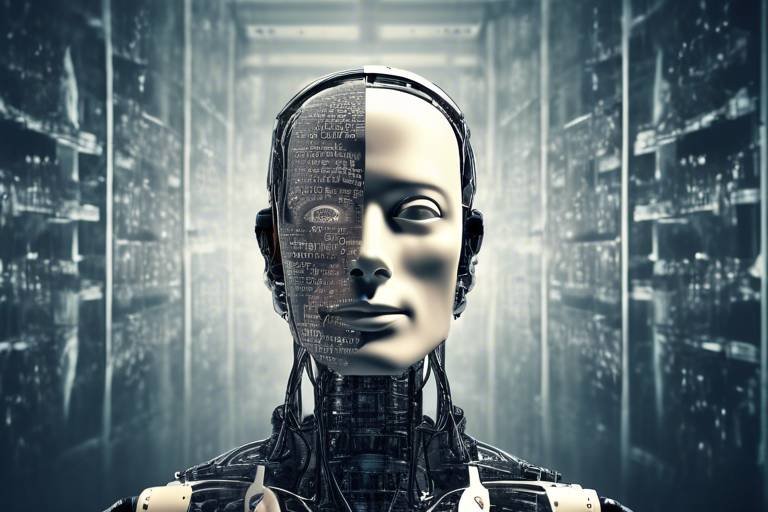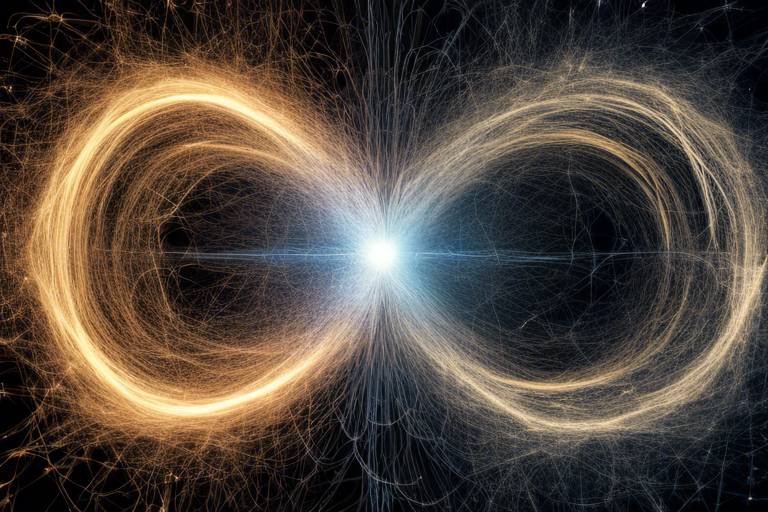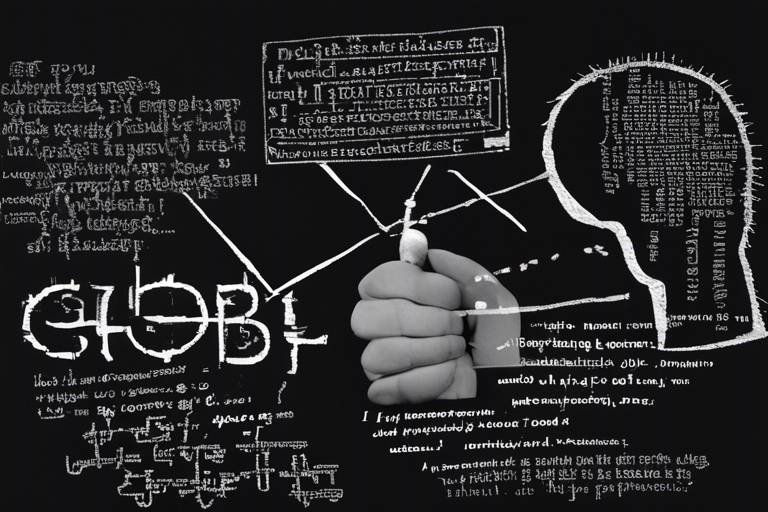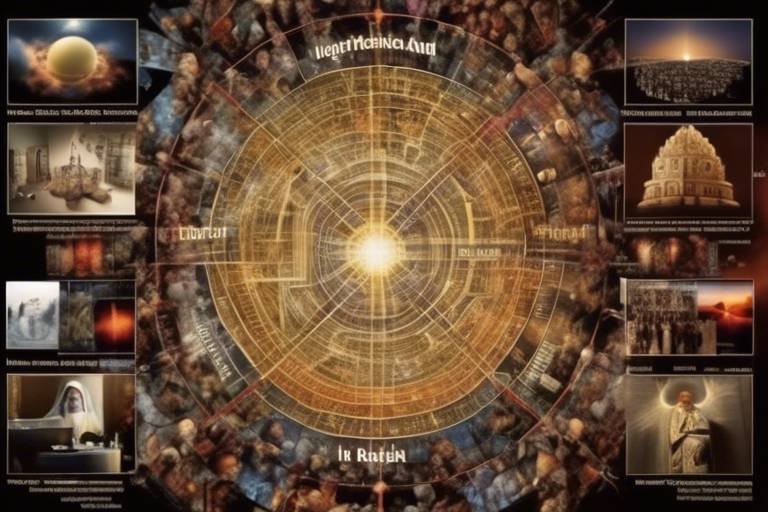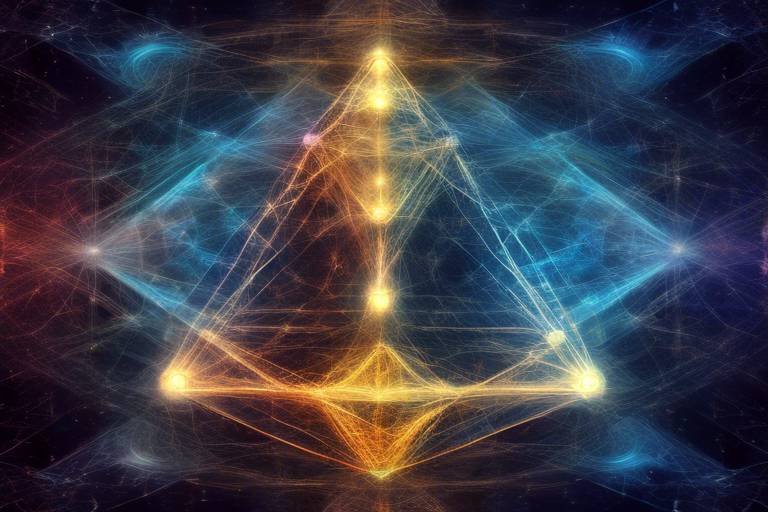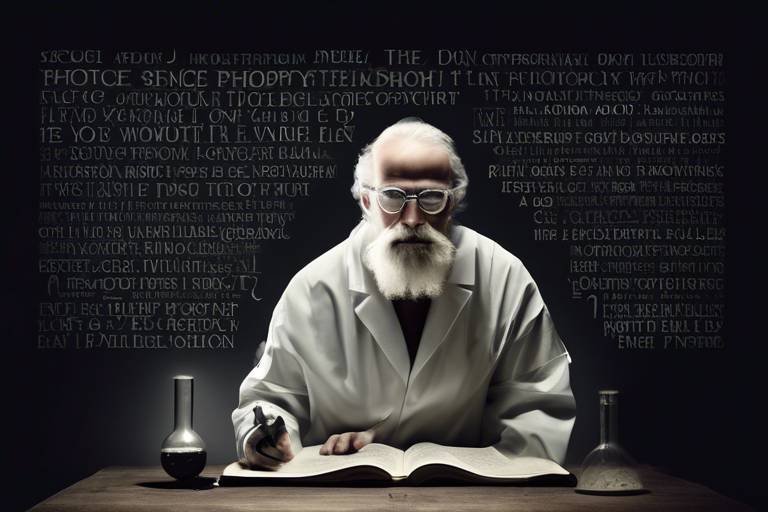Quantum Paradoxes - The Philosophical Point of View
The realm of quantum mechanics is a fascinating tapestry woven with threads of mystery and paradox. At its core, quantum mechanics challenges our most fundamental beliefs about reality, existence, and knowledge. Imagine standing at the edge of a cliff, peering into a vast ocean of uncertainty where the rules of classical physics seem to dissolve. This article explores how quantum paradoxes invite us to reconsider our understanding of the universe, urging us to ask profound questions about the nature of reality.
Quantum paradoxes, such as superposition and entanglement, compel us to rethink the very essence of reality. Are we living in a world that is objectively real, or is it merely a subjective experience shaped by our perceptions? When we encounter superposition, where particles exist in multiple states simultaneously, we are confronted with a reality that defies our conventional understanding. It's akin to flipping a coin and seeing it suspended in mid-air, both heads and tails at once. This phenomenon challenges the notion of a singular, objective reality and suggests that perhaps our perceptions play a crucial role in shaping the world around us.
Delving deeper, the observer effect in quantum mechanics raises intriguing questions about consciousness itself. What happens when we observe a quantum system? Does our act of observation alter the outcome? This leads us to ponder whether consciousness is merely a passive observer or an active participant in the unfolding of reality. Just as a painter breathes life into a blank canvas, could our awareness be shaping the very fabric of existence? The implications of this are profound, as they challenge the traditional view of a detached observer and invite us to explore the interconnectedness of consciousness and reality.
The measurement problem presents a significant philosophical dilemma: how does the act of measurement influence the state of a quantum system? This conundrum ignites debates about determinism and free will. If the outcomes of quantum experiments are inherently probabilistic, what does this mean for our understanding of causality? Are our choices predetermined, or do we possess the freedom to shape our destinies? This question resonates deeply within the human experience, as we navigate the delicate balance between fate and autonomy.
In the clash between determinism and indeterminism, quantum mechanics introduces a new layer of complexity. Classical determinism posits that every event is the result of preceding causes, creating a predictable chain of events. However, quantum indeterminacy suggests that at the subatomic level, randomness reigns supreme. This philosophical shift forces us to reconsider our understanding of causality and the very nature of existence. It’s like trying to predict the weather in a chaotic storm; sometimes, no matter how much data you gather, the outcome remains uncertain.
As we navigate the waters of quantum mechanics, the concept of free will emerges as a contentious topic. Does quantum randomness provide a space for genuine choice, or does it undermine our sense of autonomy? Some argue that the unpredictability inherent in quantum events allows for a form of free will, suggesting that our decisions might not be as predetermined as we once thought. Others contend that randomness does not equate to free will, leaving us to ponder whether our choices are simply the product of complex algorithms beyond our comprehension.
Exploring the philosophical implications of multiverse theories arising from quantum mechanics opens a Pandora's box of existential questions. If every quantum decision spawns a new universe, what does that mean for our understanding of existence? The idea of infinite realities challenges our perception of identity and agency. Imagine a vast library filled with books, each representing a different version of your life—every choice leading to a different narrative. This thought experiment forces us to confront the nature of our reality and the choices that shape it.
Quantum entanglement further complicates our understanding of separateness and individuality. When particles become entangled, the state of one instantaneously influences the state of another, regardless of the distance between them. This phenomenon suggests a profound interconnectedness within the universe, challenging our notions of individuality. It's as if we are all threads in a grand tapestry, woven together in ways we cannot fully comprehend. The philosophical implications of entanglement urge us to reconsider our relationships, both in the physical and metaphysical realms.
The questions raised by entanglement are not merely theoretical; they touch on the very nature of identity and agency. If our actions can influence others instantaneously, what does that mean for our sense of self? Are we truly autonomous beings, or are we part of a larger, interconnected system? This inquiry leads us to reflect on our relationships with others and the universe at large, prompting a reevaluation of how we define our existence.
As advancements in quantum technology, such as quantum computing and cryptography, continue to unfold, ethical dilemmas arise. The potential for unprecedented computational power raises questions about privacy, security, and individual rights. How do we navigate the ethical landscape of a technology that could fundamentally alter our society? The implications of quantum theory extend far beyond the realm of physics, urging us to consider the moral responsibilities that accompany such groundbreaking discoveries.
- What is a quantum paradox? Quantum paradoxes are phenomena in quantum mechanics that challenge our classical understanding of reality, such as superposition and entanglement.
- How does the observer effect relate to consciousness? The observer effect suggests that the act of observation can influence the outcome of a quantum event, raising questions about the role of consciousness in shaping reality.
- What are the implications of quantum indeterminacy? Quantum indeterminacy challenges the notion of classical determinism, suggesting that events at the quantum level are inherently probabilistic.
- Can quantum mechanics support the idea of free will? The relationship between quantum mechanics and free will is debated, with some arguing that quantum randomness allows for genuine choice, while others disagree.
- What ethical considerations arise from quantum technology? As quantum technology advances, ethical dilemmas related to privacy, security, and individual rights become increasingly important to address.

The Nature of Reality
When we dive into the realm of quantum mechanics, we encounter a world that feels almost surreal, challenging our traditional understanding of reality. Quantum paradoxes, such as superposition and entanglement, force us to question whether what we perceive is truly objective or merely a subjective interpretation of a more complex reality. Imagine standing at the edge of a vast ocean, where the surface appears calm, yet beneath lies a swirling chaos of currents and creatures. This metaphor captures the essence of quantum reality—what we see is just the tip of the iceberg.
Superposition, for instance, suggests that particles can exist in multiple states at once. Think of Schrödinger's cat, a thought experiment where a cat in a box is both alive and dead until observed. This paradox not only tickles our imagination but also raises significant philosophical questions: Is reality dependent on observation? Are we merely passive observers, or do we actively shape the universe through our consciousness? The implications are staggering, hinting at a reality that is fluid and dynamic rather than fixed and static.
Entanglement further complicates our understanding of reality. When two particles become entangled, the state of one instantly influences the state of the other, regardless of the distance separating them. This phenomenon suggests a profound interconnectedness that transcends the boundaries of space and time. It’s as if the universe is a grand tapestry, where each thread is woven together, and pulling one thread affects the entire fabric. But what does this mean for our perception of individuality? Are we, in some cosmic sense, all part of a larger whole?
To further illustrate the complexity of reality in the quantum realm, consider the following table that summarizes key quantum paradoxes and their philosophical implications:
| Quantum Paradox | Philosophical Implications |
|---|---|
| Superposition | Reality is not fixed; it exists in multiple states until observed. |
| Entanglement | Separation is an illusion; everything is interconnected. |
| Observer Effect | The act of observation influences reality; consciousness plays a role. |
These paradoxes not only boggle the mind but also challenge our foundational beliefs about existence. Are we living in a universe governed by strict laws, or is it more akin to a fluid painting, where the strokes of the artist (or observer) create the final image? The nature of reality, as revealed through quantum mechanics, invites us to reconsider our place in the universe. It’s a profound reminder that our understanding of existence is still a work in progress, much like an unfinished novel waiting for its next chapter.
As we ponder these questions, we can't help but wonder: What does it mean to exist in a reality that is so intricately woven with uncertainty? The journey into the depths of quantum mechanics is not just a scientific endeavor; it is a philosophical exploration that beckons us to rethink everything we thought we knew. It’s a cosmic invitation to embrace the unknown, to dance with the paradoxes, and to expand our minds beyond the limits of conventional thought.

Observer Effect and Consciousness
The observer effect in quantum mechanics is a fascinating phenomenon that compels us to reconsider the very fabric of reality. At its core, the observer effect suggests that the act of observation can influence the state of a quantum system. Imagine trying to catch a glimpse of a shy cat hiding under the couch; the moment you peek, the cat may dart away. Similarly, in the quantum realm, particles behave differently when they are being observed. This raises profound questions about the nature of consciousness and reality itself.
What if our awareness is not just a passive experience but an active participant in shaping the universe? This perspective challenges the traditional view that reality exists independently of our perception. It makes us ponder: does our consciousness play a pivotal role in the unfolding of events around us? The implications are staggering, suggesting that we may not be mere observers of the universe but integral components of it.
To delve deeper, let’s consider the famous double-slit experiment. When particles, like electrons, are fired through two slits, they create an interference pattern, indicating wave-like behavior. However, when we observe which slit the particles go through, they behave like particles, collapsing the wave function. This dramatic shift based on observation raises questions about the relationship between consciousness and reality. Are we, as conscious beings, influencing the very essence of what we perceive?
Furthermore, the observer effect invites us to explore the concept of awareness. Is consciousness merely a byproduct of complex biological processes, or does it have a deeper significance? Some philosophers argue that consciousness itself might be a fundamental aspect of the universe, akin to space and time. This leads us to a tantalizing possibility: could our thoughts and intentions shape the reality we experience?
In light of these considerations, it’s essential to address the measurement problem. This dilemma centers around the role of the observer in determining the outcomes of quantum experiments. When we measure a quantum state, we seem to force it into a specific reality, raising questions about determinism and free will. If our observations can alter outcomes, does that imply that we have some degree of control over reality, or are we simply responding to a predetermined script?
The measurement problem is not just a technical issue in quantum mechanics; it is a profound philosophical conundrum. It challenges our understanding of causality and the nature of existence. Are we, as conscious observers, endowed with the power to shape reality, or are we bound by the constraints of a predetermined universe? This dilemma leads us to explore the intricate dance between determinism and indeterminism.
In classical physics, the universe operates like a well-oiled machine, where every event is determined by preceding conditions. However, quantum mechanics introduces a level of uncertainty that defies this deterministic view. The notion of quantum indeterminacy suggests that at a fundamental level, events may occur randomly, without a predetermined path. This raises critical questions: if the universe is inherently unpredictable, what does it mean for our understanding of causality? Are we merely spectators in a chaotic tapestry of existence, or do we have the agency to influence the threads of our reality?
The relationship between quantum mechanics and the concept of free will is a hotly debated topic. Some argue that the inherent randomness of quantum events opens the door for genuine choice, suggesting that our decisions are not merely products of deterministic processes. On the other hand, critics contend that if our choices are influenced by random quantum fluctuations, does that undermine the very essence of autonomy? This philosophical tug-of-war challenges us to rethink the nature of choice and responsibility in a universe that may not be as predictable as we once believed.
In conclusion, the observer effect and its implications for consciousness invite us to reconsider our place in the universe. Are we passive recipients of reality, or do we actively shape it through our awareness? The exploration of these questions not only enhances our understanding of quantum mechanics but also challenges the very foundations of philosophy and existence itself.
- What is the observer effect? The observer effect refers to changes that the act of observation can make on a quantum system, suggesting that reality may not be independent of our consciousness.
- How does the observer effect relate to consciousness? It raises questions about whether our awareness influences reality, suggesting a deeper interconnectedness between observation and existence.
- What is the measurement problem? The measurement problem addresses the role of the observer in determining the outcomes of quantum experiments, leading to debates about determinism and free will.
- Can quantum mechanics provide evidence for free will? Some interpretations suggest that quantum randomness could allow for genuine choice, while others argue it may undermine autonomy.
- What are the implications of quantum indeterminacy? Quantum indeterminacy challenges classical notions of causality, suggesting that events may occur without predetermined paths.

Measurement Problem
The measurement problem in quantum mechanics is a fascinating conundrum that has perplexed scientists and philosophers alike. At its core, this issue questions the role of the observer in the quantum world and how their actions influence the outcome of experiments. Imagine you're in a dark room, and you flip a switch. Until you look at the light bulb, it exists in a state of uncertainty—both on and off at the same time. This analogy captures the essence of quantum superposition, where particles can exist in multiple states until they are observed. It's a mind-boggling concept, isn't it?
To delve deeper, let's consider the famous double-slit experiment. When particles like electrons are fired at a barrier with two slits, they create an interference pattern on a screen behind the barrier, suggesting they behave like waves. However, if we place detectors at the slits to observe which slit the electron goes through, the interference pattern disappears, and the particles behave like classical particles instead. This stark change in behavior raises profound questions: If observation alters reality, what does that say about the nature of existence itself?
The implications of the measurement problem extend beyond physics; they challenge our understanding of determinism and free will. If the act of measurement influences outcomes, can we truly say that the universe operates on fixed laws? Or is it a chaotic dance of probabilities? This dilemma leads us to ponder whether our choices are predetermined by the laws of physics or if we have the freedom to shape our own destinies.
To illustrate the philosophical stakes involved, consider the following points:
- Role of the Observer: Does the observer create reality, or do they merely unveil it?
- Nature of Reality: Is reality objective, existing independently of our perceptions, or is it subjective, shaped by our observations?
- Determinism vs. Free Will: If quantum events are probabilistic, how does this affect our understanding of causality and choice?
As we navigate these complex waters, we find ourselves at the intersection of science and philosophy, where questions abound and answers remain elusive. The measurement problem not only challenges the foundations of quantum mechanics but also invites us to reevaluate our understanding of consciousness and existence. It's a thrilling intellectual journey that encourages us to embrace uncertainty and explore the mysteries of the universe with open minds.
- What is the measurement problem in quantum mechanics?
The measurement problem refers to the question of how and why observations affect the state of quantum systems, leading to different outcomes based on whether they are observed or not. - How does the observer effect relate to the measurement problem?
The observer effect highlights that the act of measuring a quantum system can change its state, thus intertwining the concepts of observation and measurement. - Why is the measurement problem significant?
This problem raises fundamental questions about reality, consciousness, and the nature of existence, challenging our traditional views of determinism and free will.

Determinism vs. Indeterminism
When we dive into the philosophical implications of quantum mechanics, one of the most intriguing debates is between determinism and indeterminism. At its core, determinism suggests that every event or state of affairs, including every human action, is the outcome of preceding events in accordance with the natural laws. Imagine a perfectly tuned clock; every tick is determined by the previous tick, leaving no room for randomness. In contrast, indeterminism introduces the idea that not all events are preordained, allowing for the possibility of randomness and unpredictability. This concept can be likened to tossing a coin: while we can predict the odds, the outcome is inherently uncertain.
Quantum mechanics, with its strange phenomena, particularly challenges the deterministic view. Consider the famous double-slit experiment, where particles behave differently when observed. When unobserved, they can exist in a state of superposition, meaning they can be in multiple states at once. However, once we measure or observe them, they 'collapse' into one state. This peculiar behavior raises a fundamental question: does our act of observing influence reality? If it does, then perhaps the universe is not as deterministic as we once thought.
To further illustrate, let's look at a simple comparison between determinism and indeterminism:
| Aspect | Determinism | Indeterminism |
|---|---|---|
| Nature of Events | All events are predetermined. | Some events are random or unpredictable. |
| Philosophical Implication | Free will is an illusion. | Free will can exist alongside randomness. |
| Example | A clockwork universe. | A game of chance. |
This clash between determinism and indeterminism not only influences our understanding of the universe but also shapes our views on free will. If every action is predetermined, can we truly claim to make choices? Or does the indeterminacy of quantum events allow for a more nuanced understanding of human agency? This question is not merely academic; it resonates deeply within our personal lives, influencing how we perceive responsibility and the nature of our decisions.
Ultimately, the discussion surrounding determinism and indeterminism invites us to reconsider our assumptions about reality. Are we merely players in a predetermined script, or do we have the power to influence the narrative? As we continue to explore the depths of quantum mechanics, these questions will remain at the forefront of both scientific inquiry and philosophical debate.
- What is determinism? Determinism is the philosophical belief that all events, including human actions, are determined by preceding events in accordance with natural laws.
- What is indeterminism? Indeterminism is the idea that not all events are preordained, allowing for randomness and unpredictability in the universe.
- How does quantum mechanics relate to these concepts? Quantum mechanics introduces phenomena like superposition and entanglement, which challenge the deterministic view by suggesting that observation can influence outcomes.
- Can free will exist in a deterministic universe? This is a complex question; some argue that if determinism is true, free will is an illusion, while others believe that indeterminism allows for genuine choice.

Free Will in Quantum Mechanics
When we dive into the world of quantum mechanics, we often find ourselves grappling with the concept of free will. At first glance, quantum randomness seems to open up a Pandora's box of possibilities, suggesting that our choices might not be as predetermined as we once thought. But does this mean we truly have free will? Or is it merely an illusion crafted by the unpredictable nature of subatomic particles?
To understand this complex relationship, we need to first consider the idea of quantum indeterminacy. Unlike classical physics, where outcomes are predictable and determined by prior states, quantum mechanics introduces a level of unpredictability. For instance, when a particle is in a superposition, it exists in multiple states until measured. This raises an intriguing question: if the universe operates on principles of chance and uncertainty, does this imply that our decisions are also influenced by randomness?
Some philosophers argue that if our choices are influenced by quantum randomness, it undermines the very essence of free will. After all, if our decisions are merely the result of random quantum fluctuations, can we truly claim to have autonomy? On the other hand, proponents of quantum free will suggest that this randomness could actually enrich our understanding of choice. They argue that the unpredictability inherent in quantum mechanics might allow for a more nuanced interpretation of free will—one that acknowledges both randomness and conscious decision-making.
To illustrate this, let's consider the analogy of a coin toss. When we flip a coin, we can predict the outcomes (heads or tails), but the result is ultimately left to chance. In a similar way, our choices might be shaped by both deterministic factors (like our experiences and knowledge) and quantum randomness, creating a blend of influences that lead to our final decision. Thus, the interplay between these elements could suggest that while we may not have absolute control, we still possess a form of agency.
Furthermore, the implications of quantum mechanics extend beyond individual choice. They challenge our understanding of responsibility and moral accountability. If our decisions are influenced by the unpredictable nature of quantum events, can we still hold individuals accountable for their actions? This question leads to deeper philosophical inquiries about justice, ethics, and the very fabric of human existence.
In summary, the relationship between free will and quantum mechanics is a rich tapestry woven with threads of uncertainty, choice, and responsibility. As we continue to explore the mysteries of the quantum realm, we may find that our understanding of free will evolves, reflecting the complexity of both our universe and our own consciousness.
- What is quantum indeterminacy? Quantum indeterminacy refers to the inherent unpredictability in the behavior of particles at the quantum level, which contrasts with classical physics' deterministic nature.
- How does quantum mechanics affect our understanding of free will? Quantum mechanics introduces randomness, leading to debates about whether our choices are truly autonomous or influenced by chance.
- Can we be held accountable for our actions if they are influenced by quantum randomness? This is a complex philosophical question that challenges traditional views on moral responsibility and accountability.

Parallel Universes and Multiverse Theory
The concept of parallel universes and the broader idea of multiverse theory is nothing short of mind-bending. Imagine a reality where every decision you make spawns a new universe, each one diverging from the last. It’s like flipping a coin; every time it lands, a new outcome creates a new universe where the opposite result occurred. This notion isn't just a fanciful idea from science fiction; it emerges from interpretations of quantum mechanics, particularly the many-worlds interpretation proposed by physicist Hugh Everett III in 1957. Here, every quantum event branches into multiple outcomes, each existing in its own universe. This raises profound philosophical questions about existence, identity, and the very fabric of reality itself.
One of the most captivating aspects of multiverse theory is its implications for our understanding of existence. If there are indeed infinite universes, then every possible scenario we can imagine exists somewhere. This leads to the tantalizing idea that there might be a version of you who made different choices, living out alternate lives. But what does this mean for our sense of self? Are we merely a collection of decisions, or is there something more intrinsic that defines our identity across these myriad realities? The philosophical implications are staggering, challenging the notion of a singular, objective reality that we often take for granted.
Moreover, the idea of a multiverse can reshape our understanding of causality. In classical physics, every effect has a cause, leading to a linear understanding of events. However, in a multiverse, causality becomes a tangled web, where each choice leads to a divergence of realities. This can make it difficult to pinpoint what we consider to be the "original" cause of an event, as every decision creates a ripple effect across countless universes. As we ponder these questions, we find ourselves standing at the crossroads of science and philosophy, where the very nature of existence is called into question.
Furthermore, the multiverse theory invites us to consider the nature of reality itself. If our universe is just one of many, what does that say about our own significance? Are we just a tiny speck in an infinite cosmos, or do our choices matter in the grand scheme of things? This notion can be both humbling and liberating, forcing us to reevaluate our place in the universe and how we perceive our lives. As we grapple with these ideas, we are left with more questions than answers, leading to an exhilarating journey through the realms of possibility.
In conclusion, the exploration of parallel universes and multiverse theory not only stretches the limits of our scientific understanding but also beckons us to reflect on the philosophical implications of our existence. As we delve deeper into quantum mechanics, we find ourselves not just seeking answers but embracing the mystery of what it means to be alive in a universe—or perhaps a multiverse—teeming with infinite possibilities.
- What is the multiverse theory? The multiverse theory suggests that there are multiple, possibly infinite, universes that exist parallel to our own, each with different outcomes and realities.
- How does quantum mechanics relate to parallel universes? Quantum mechanics, particularly through interpretations like the many-worlds interpretation, posits that every quantum event can lead to multiple outcomes, each creating a new universe.
- What are the philosophical implications of the multiverse? The multiverse challenges our understanding of reality, identity, and causality, prompting us to reconsider our significance and the nature of existence itself.
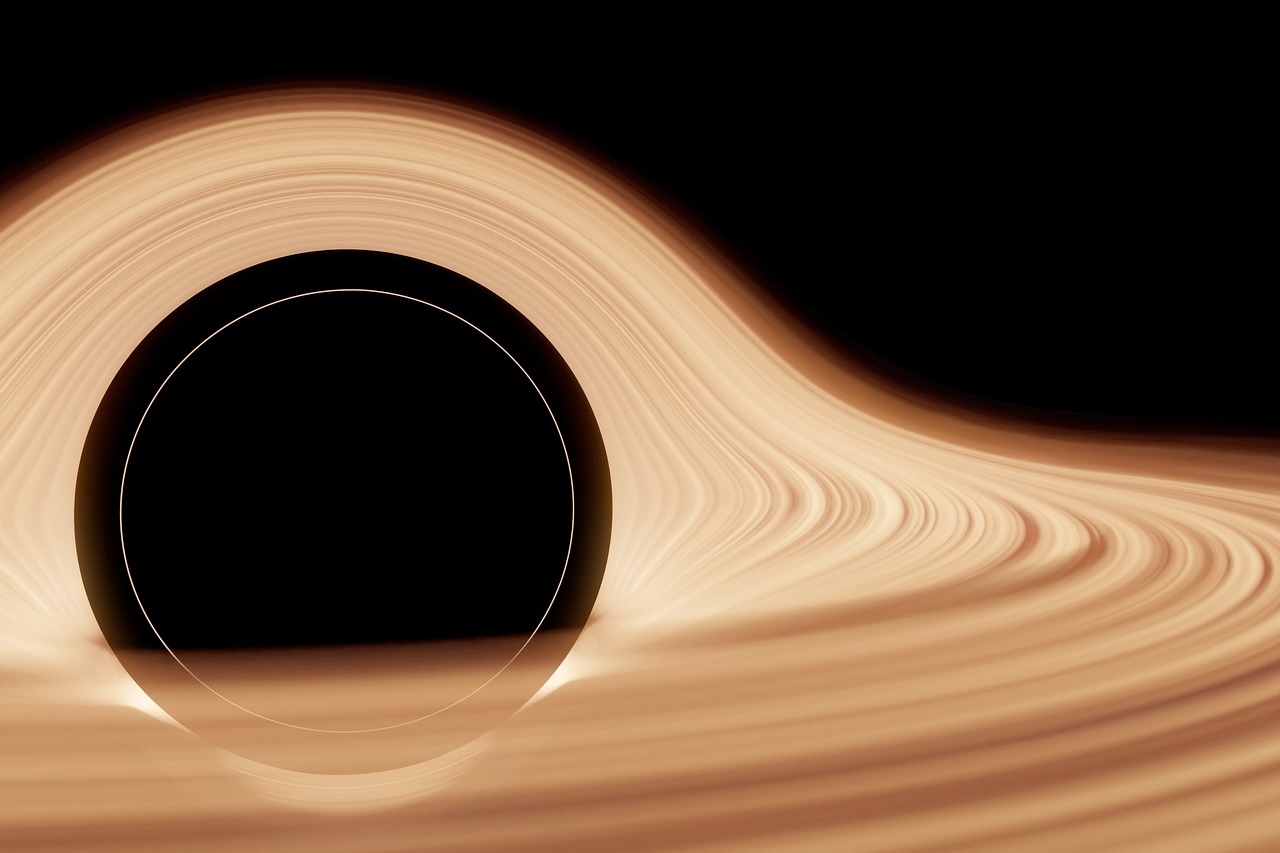
Quantum Entanglement and Connection
When we dive into the world of quantum entanglement, we’re not just talking about particles behaving in ways that defy our everyday understanding; we’re stepping into a realm that challenges our very notions of separateness and individuality. Imagine two particles, once linked, remaining connected regardless of the distance that separates them. It’s as if they’re engaged in a cosmic dance, communicating instantaneously, no matter how far apart they are. This phenomenon raises profound questions about the fabric of reality itself and our place within it.
At its core, quantum entanglement suggests that everything in the universe is interconnected. This idea can be mind-boggling. If two particles can be entangled, what does that say about our own connections with others? Are our lives intertwined in ways that we cannot yet comprehend? This interconnectedness challenges the traditional view that we are isolated entities, living in a world of distinct, separate beings. Instead, it hints at a deeper unity, a web of existence that binds us all.
But let’s dig a little deeper. The implications of quantum entanglement extend beyond mere philosophical musings. They touch on the essence of our relationships, identity, and even our understanding of agency. For instance, if entangled particles can affect each other instantaneously, how does this influence our perception of causality? Are our choices truly ours, or are they influenced by an intricate tapestry of connections that we cannot see? These questions are not just academic; they have real-world applications, particularly in the fields of quantum computing and quantum cryptography.
To illustrate the concept of quantum entanglement, consider the following table that summarizes its key features:
| Feature | Description |
|---|---|
| Instantaneous Connection | Entangled particles affect each other's states instantly, regardless of distance. |
| Non-locality | Changes to one particle immediately influence its entangled partner. |
| Quantum Superposition | Before measurement, entangled particles exist in multiple states at once. |
| Potential Applications | Quantum computing, secure communication, and advanced algorithms. |
Moreover, the ethical implications of quantum entanglement cannot be ignored. As we advance in our understanding of quantum mechanics, we must consider the potential consequences of harnessing this knowledge. For instance, if we can manipulate entangled particles for communication or computation, what does that mean for privacy and security? The lines between individual autonomy and collective connection may blur, leading to ethical dilemmas that society must navigate.
In summary, quantum entanglement not only reshapes our understanding of the universe but also invites us to reconsider our relationships with one another and the ethical responsibilities that come with such knowledge. As we explore this fascinating aspect of quantum mechanics, we are reminded that the universe may be far more interconnected than we ever imagined, urging us to embrace the complexity of existence and the profound connections that bind us.
- What is quantum entanglement? Quantum entanglement is a phenomenon where two or more particles become linked, such that the state of one particle instantly influences the state of another, regardless of the distance separating them.
- How does quantum entanglement challenge our understanding of reality? It suggests that particles are not isolated but are part of a greater interconnectedness, raising questions about individuality and the nature of existence.
- What are the potential applications of quantum entanglement? Applications include advancements in quantum computing, cryptography, and secure communication systems.
- What ethical considerations arise from quantum entanglement? The manipulation of entangled particles could lead to privacy and security concerns, highlighting the need for ethical guidelines in quantum technology.
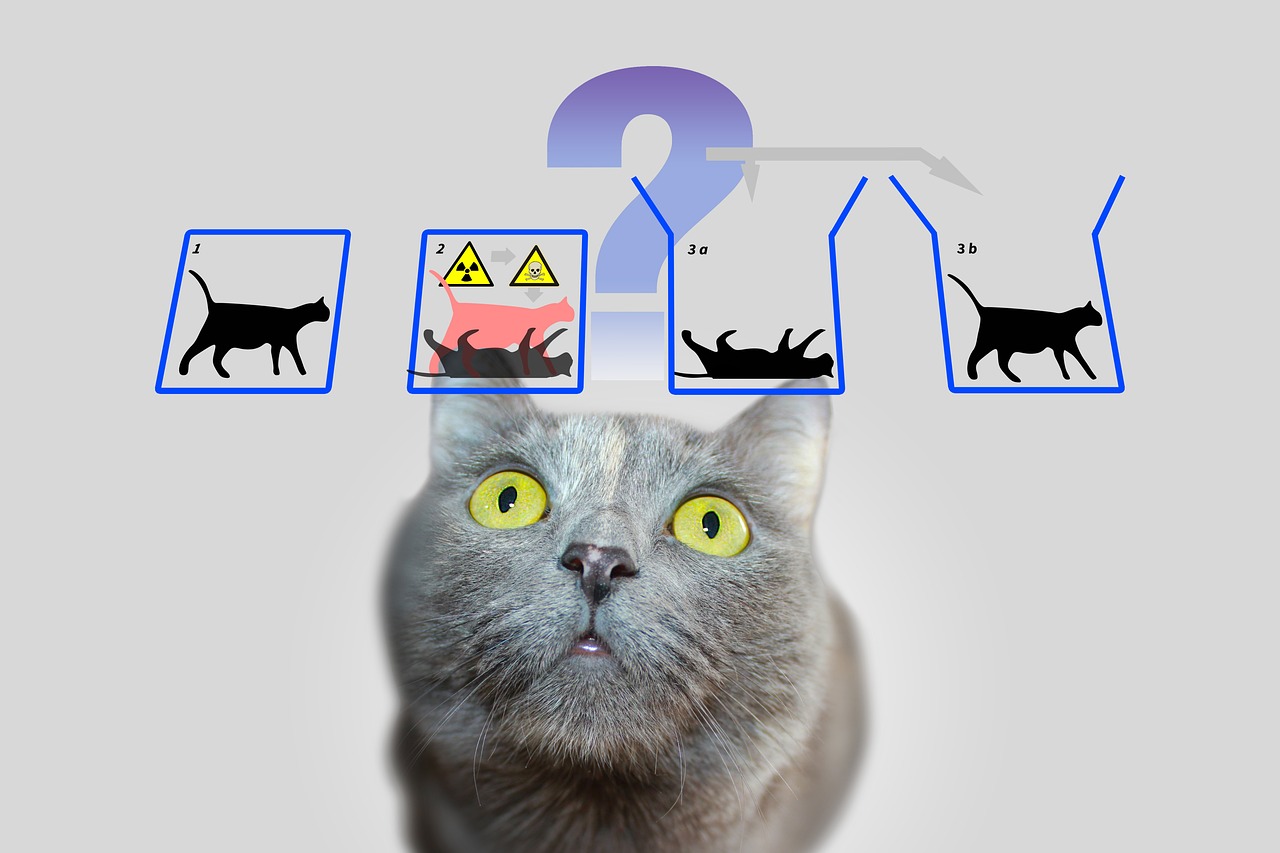
Philosophical Implications of Entanglement
Quantum entanglement is one of the most astonishing phenomena in quantum mechanics, where particles become intertwined in such a way that the state of one instantly influences the state of another, regardless of the distance separating them. This peculiar connection challenges our traditional understanding of individuality and separateness, leading to profound philosophical implications. At its core, entanglement invites us to reconsider the very fabric of reality and our place within it.
Imagine two dancers moving in perfect harmony, each responding to the other's every move, no matter how far apart they are. This metaphor illustrates the essence of entanglement—particles that are “dancing” together in a cosmic ballet, defying the classical notion that objects are distinct and independent. The implications of this interconnectedness extend beyond the realm of physics and seep into the philosophical discourse about identity and agency. If particles can influence one another instantaneously, what does that suggest about the relationships between individuals in our own lives?
One of the most thought-provoking aspects of entanglement is its challenge to the concept of locality. In classical physics, objects are thought to interact only through direct contact or via forces that propagate through space. However, entangled particles seem to communicate in a manner that transcends these limitations, suggesting a deeper, non-local connection that could imply that everything in the universe is fundamentally linked. This raises questions about the nature of reality itself: Is the universe a collection of isolated entities, or is it a single, interconnected whole?
Moreover, entanglement forces us to grapple with the nature of identity. If two particles are entangled, can we still consider them as separate entities? This dilemma extends to human relationships and social constructs. Are we, like entangled particles, influenced by others in ways we cannot see or understand? The idea that our identities might be intertwined with those of others challenges the notion of individualism and prompts a reevaluation of how we perceive ourselves within the larger tapestry of existence.
Furthermore, the implications of entanglement extend into the realm of agency and free will. If our actions are influenced by a web of connections that we cannot fully comprehend, to what extent are we truly autonomous? This leads to a fascinating discussion about determinism and free will in a quantum context. Are our choices genuine expressions of personal agency, or are they merely the result of entangled interactions that we are unaware of? The philosophical ramifications of this inquiry are immense and provoke deep reflection on the nature of choice and responsibility.
In conclusion, the philosophical implications of quantum entanglement stretch far beyond mere scientific curiosity. They challenge our foundational beliefs about reality, identity, and agency, urging us to rethink our understanding of the universe and our place within it. As we delve deeper into the mysteries of quantum mechanics, we may find that the answers to these questions are not just confined to the laboratory but resonate profoundly in our everyday lives, reshaping the way we perceive our connections with others and the world around us.
- What is quantum entanglement? Quantum entanglement is a phenomenon where two or more particles become interconnected in such a way that the state of one particle instantly influences the state of another, regardless of the distance between them.
- How does entanglement challenge our understanding of reality? It suggests that the universe may be a single interconnected whole rather than a collection of isolated entities, prompting us to reconsider the nature of separateness and individuality.
- What are the implications for free will? Entanglement raises questions about whether our choices are genuinely autonomous or influenced by unseen connections with others, complicating the traditional notions of free will and personal agency.

Ethical Considerations in Quantum Theory
As we plunge deeper into the fascinating world of quantum mechanics, we are not just unraveling the mysteries of the universe; we are also opening a Pandora's box of ethical dilemmas that challenge our moral compass. The rapid advancements in quantum technologies, such as quantum computing and cryptography, are reshaping our societal landscape, prompting us to ask: What responsibilities do we hold as we harness these powerful tools? The implications of these technologies are profound, and they necessitate a careful examination of the ethical frameworks that govern their use.
One of the most pressing concerns is the potential for quantum computing to disrupt current security protocols. Traditional encryption methods, which protect sensitive information, could be rendered obsolete by the computational power of quantum machines. This raises serious questions about privacy and security. If quantum computers can easily break encryption, how do we safeguard personal data, financial transactions, and even state secrets? The ethical implications of such vulnerabilities are staggering, as they could lead to widespread identity theft, corporate espionage, and even geopolitical conflicts.
Moreover, the advent of quantum technologies could exacerbate existing inequalities. Imagine a world where only a select few have access to quantum computing capabilities, allowing them to manipulate data and information in ways that others cannot. This could lead to a new form of digital divide, where the powerful become even more powerful, while the marginalized are left behind. How do we ensure equitable access to these technologies? This question is not merely academic; it has real-world implications for social justice and equity.
In addition to these concerns, we must also consider the ethical ramifications of quantum cryptography. While it promises unparalleled security for communications, it also raises questions about surveillance and the potential for misuse by governments or corporations. As we develop technologies that can guarantee privacy, we must ask ourselves: What is the balance between security and freedom? Are we willing to sacrifice our privacy for the sake of safety, or do we risk creating a society where surveillance becomes the norm?
To navigate these complex ethical waters, it is imperative that we engage in a multidisciplinary dialogue involving scientists, ethicists, policymakers, and the public. Establishing a robust ethical framework is essential to guide the development and deployment of quantum technologies. This framework should address not only the potential risks but also the responsibilities of those who wield such power. What ethical principles should govern quantum research and its applications? This is a question that demands our attention.
In conclusion, as we stand on the brink of a quantum revolution, we must remain vigilant about the ethical implications of our discoveries. The potential benefits of quantum technologies are immense, but so too are the risks. By fostering an open dialogue and prioritizing ethical considerations, we can ensure that our journey into the quantum realm is guided by a commitment to justice, equity, and the common good.
- What is quantum computing? Quantum computing is a type of computation that uses quantum bits (qubits) to perform calculations at speeds unattainable by classical computers.
- How does quantum cryptography work? Quantum cryptography uses the principles of quantum mechanics to create secure communication channels that are theoretically immune to eavesdropping.
- What are the ethical implications of quantum technology? Ethical implications include concerns about privacy, security, access inequality, and the potential for misuse by governments or corporations.
- How can we ensure equitable access to quantum technologies? Ensuring equitable access requires policy initiatives, public dialogue, and collaboration across sectors to bridge the digital divide.
Frequently Asked Questions
-
What are quantum paradoxes?
Quantum paradoxes are intriguing phenomena in quantum mechanics that challenge our traditional understanding of reality. They include concepts like superposition, where particles can exist in multiple states simultaneously, and entanglement, where particles become interconnected in ways that defy classical physics. These paradoxes force us to rethink what we know about existence, knowledge, and the nature of reality itself.
-
How does the observer effect influence reality?
The observer effect suggests that the act of observation can alter the state of a quantum system. This raises profound questions about consciousness and reality. Are we merely observers, or do we play a role in shaping the universe? It's like when you turn on a light in a dark room; suddenly, everything changes, and what was once hidden is now illuminated. This concept invites us to explore the relationship between observation and existence.
-
What is the measurement problem in quantum mechanics?
The measurement problem refers to the challenge of understanding how and why quantum systems transition from a state of superposition to a definite outcome when measured. This dilemma leads to philosophical debates about determinism and free will. Are our choices predetermined by quantum states, or is there room for genuine free will? It's a puzzle that keeps thinkers awake at night!
-
Can quantum mechanics coexist with the idea of free will?
This is a hot topic! Some argue that quantum randomness allows for genuine choice, suggesting that our decisions aren't entirely predetermined. Others believe that if everything is influenced by quantum mechanics, then our sense of autonomy might be an illusion. It's like trying to navigate a maze where some paths are hidden until you make a choice—are you really in control?
-
What are parallel universes and how do they relate to quantum mechanics?
Parallel universes stem from the multiverse theory, which posits that every quantum decision creates a branching of realities. This means there could be countless versions of you living different lives based on the choices made at quantum levels. It's a mind-boggling concept that invites us to ponder the nature of existence—are we just one of many possibilities?
-
What implications does quantum entanglement have for our understanding of connection?
Quantum entanglement suggests that particles can be linked in ways that transcend space and time, challenging our notions of individuality and separateness. It’s as if two dancers are perfectly in sync, no matter how far apart they are. This interconnectedness prompts us to rethink relationships, identity, and even our place in the universe.
-
Are there ethical considerations related to advancements in quantum technology?
Absolutely! As quantum technologies like quantum computing and cryptography develop, they raise significant ethical dilemmas. For instance, how do we protect individual rights in a world where quantum computing could break current encryption methods? It's essential to navigate these advancements thoughtfully, ensuring that technology serves humanity rather than undermining it.



